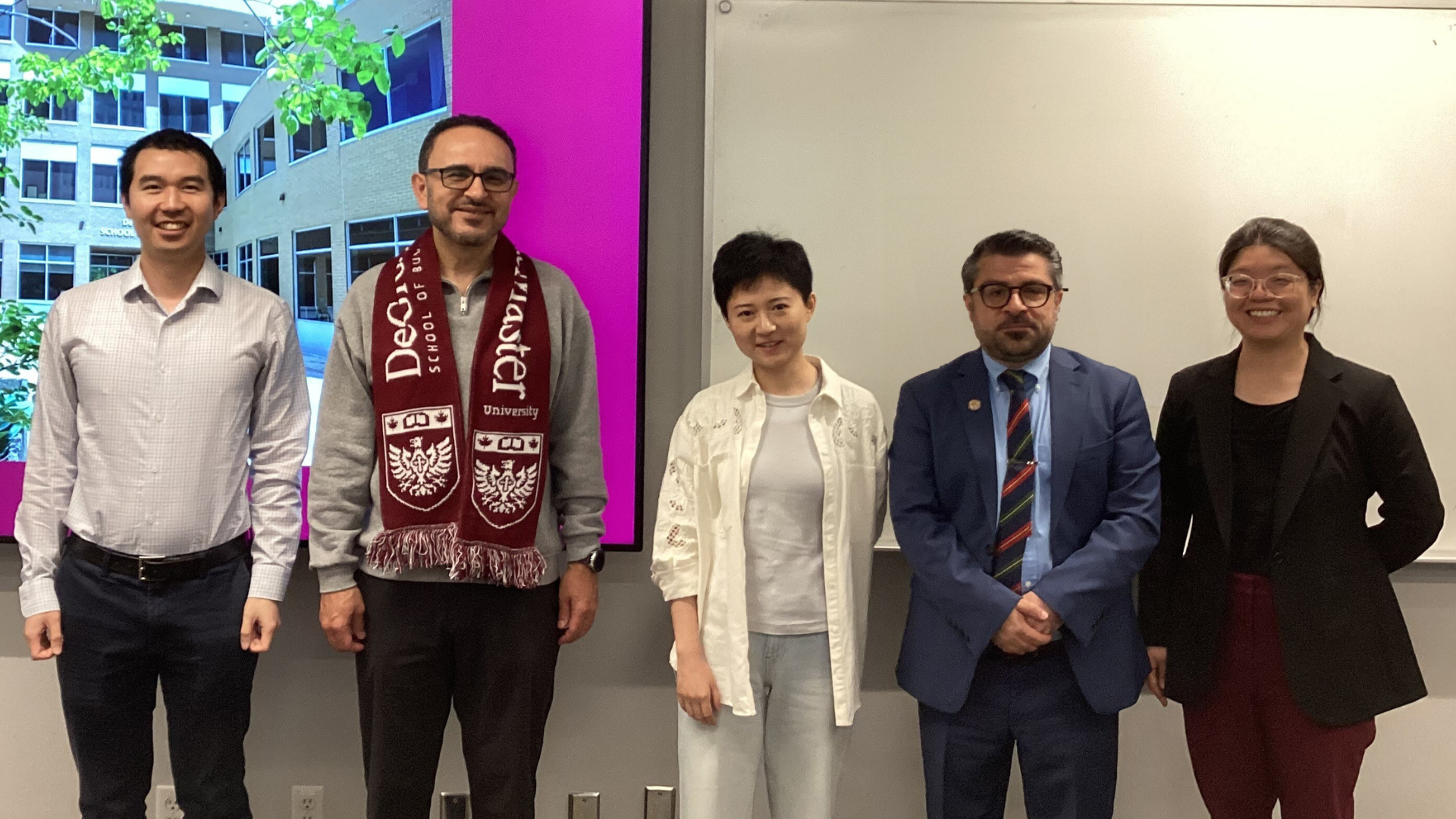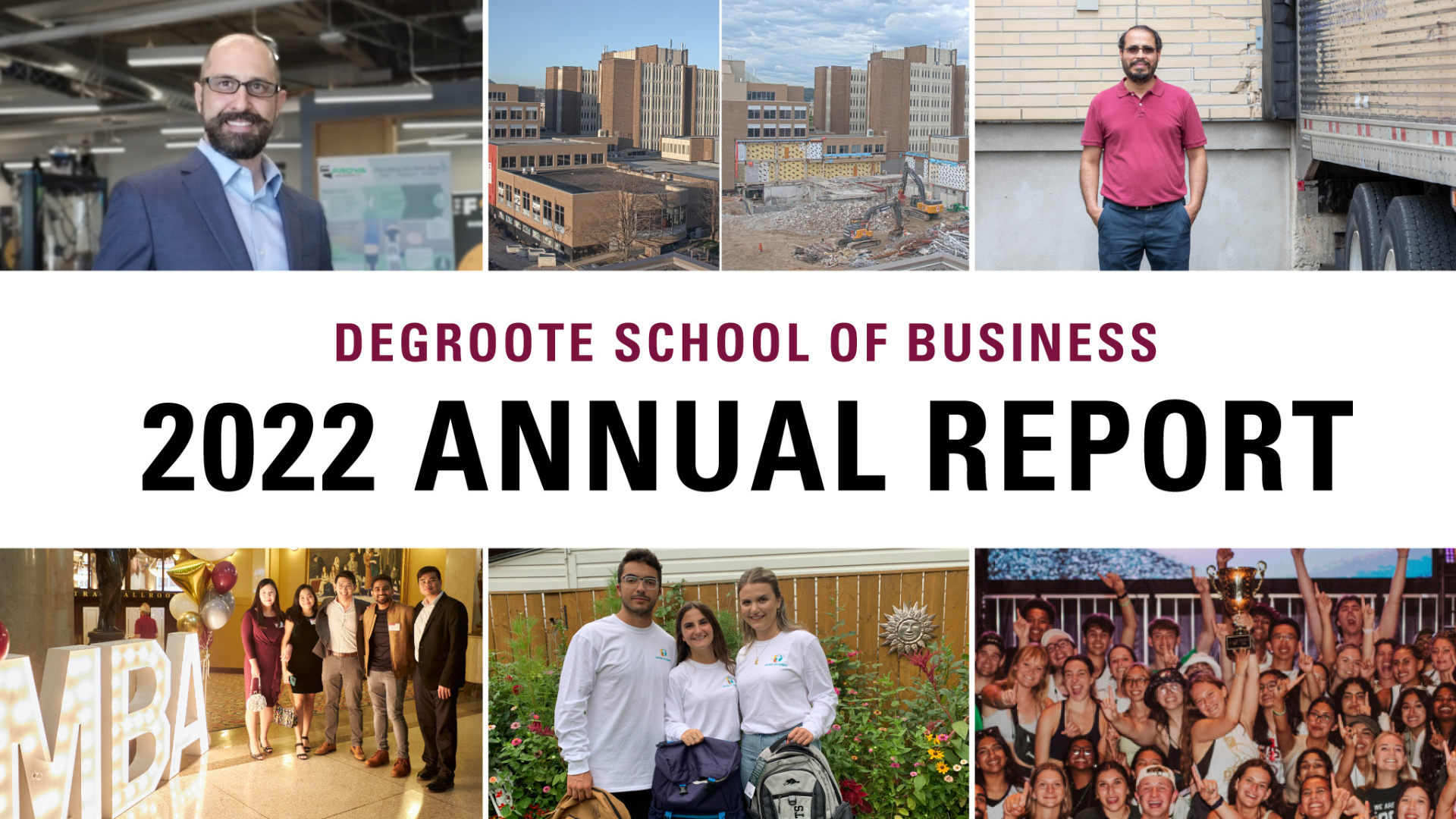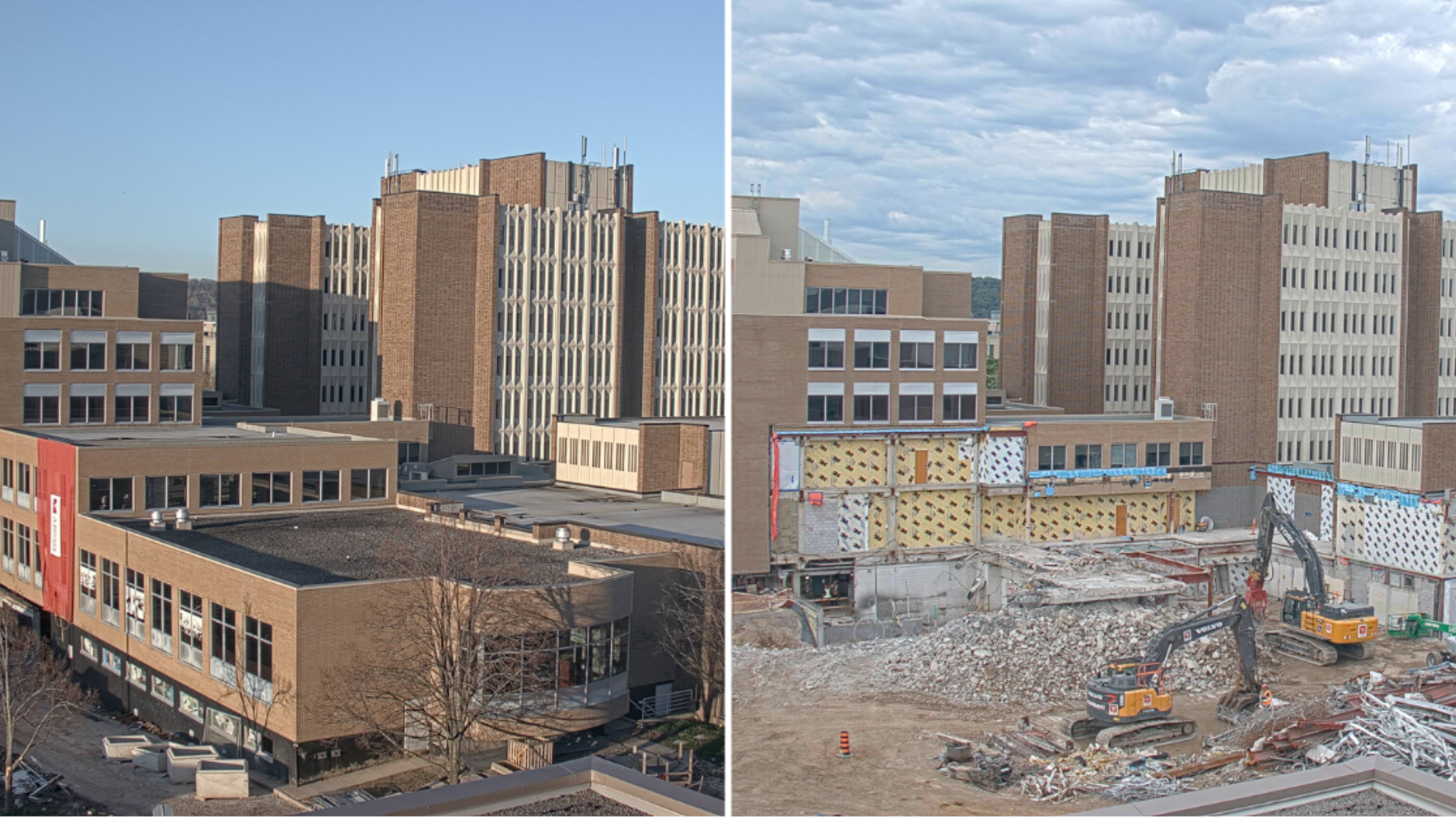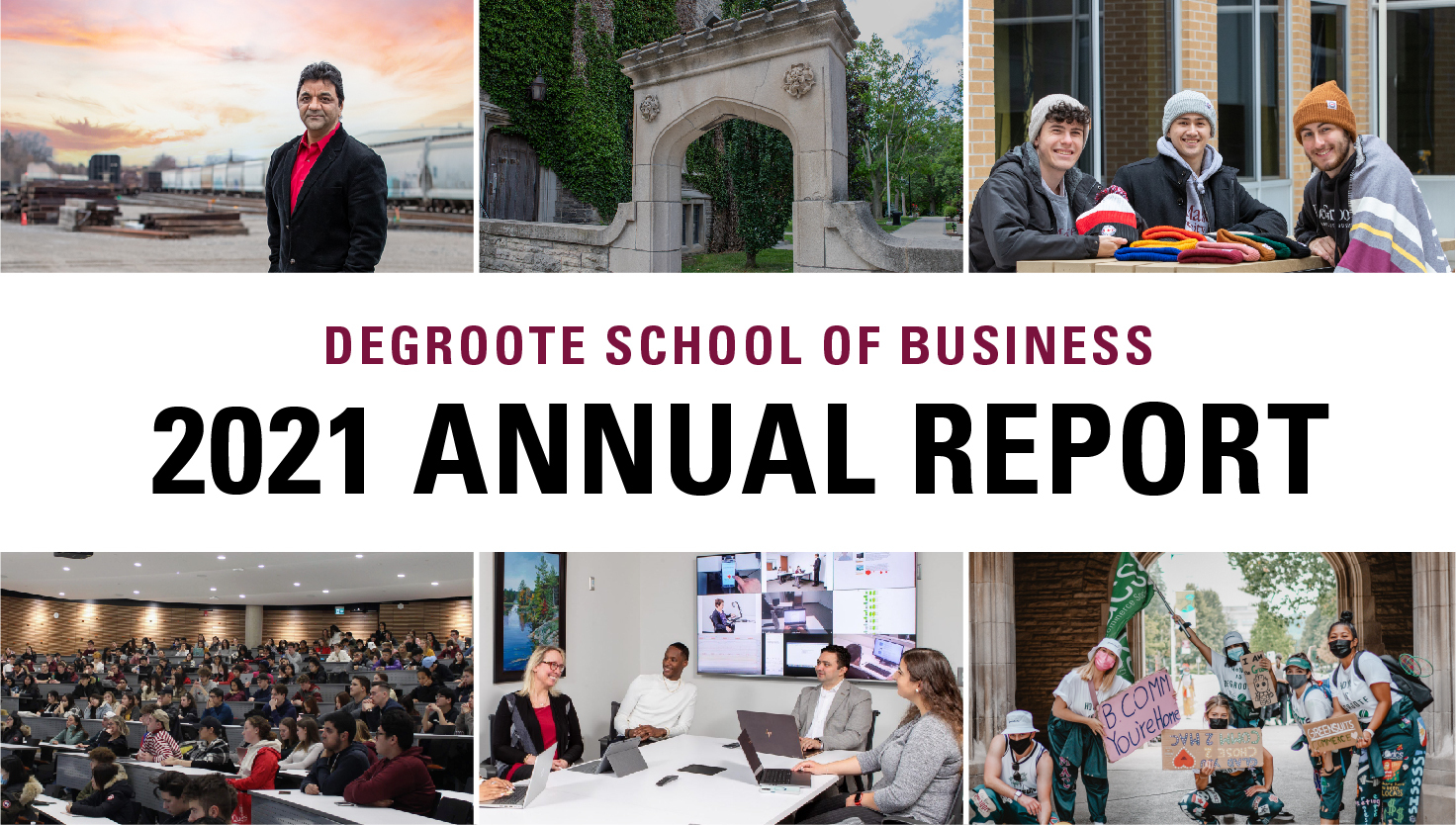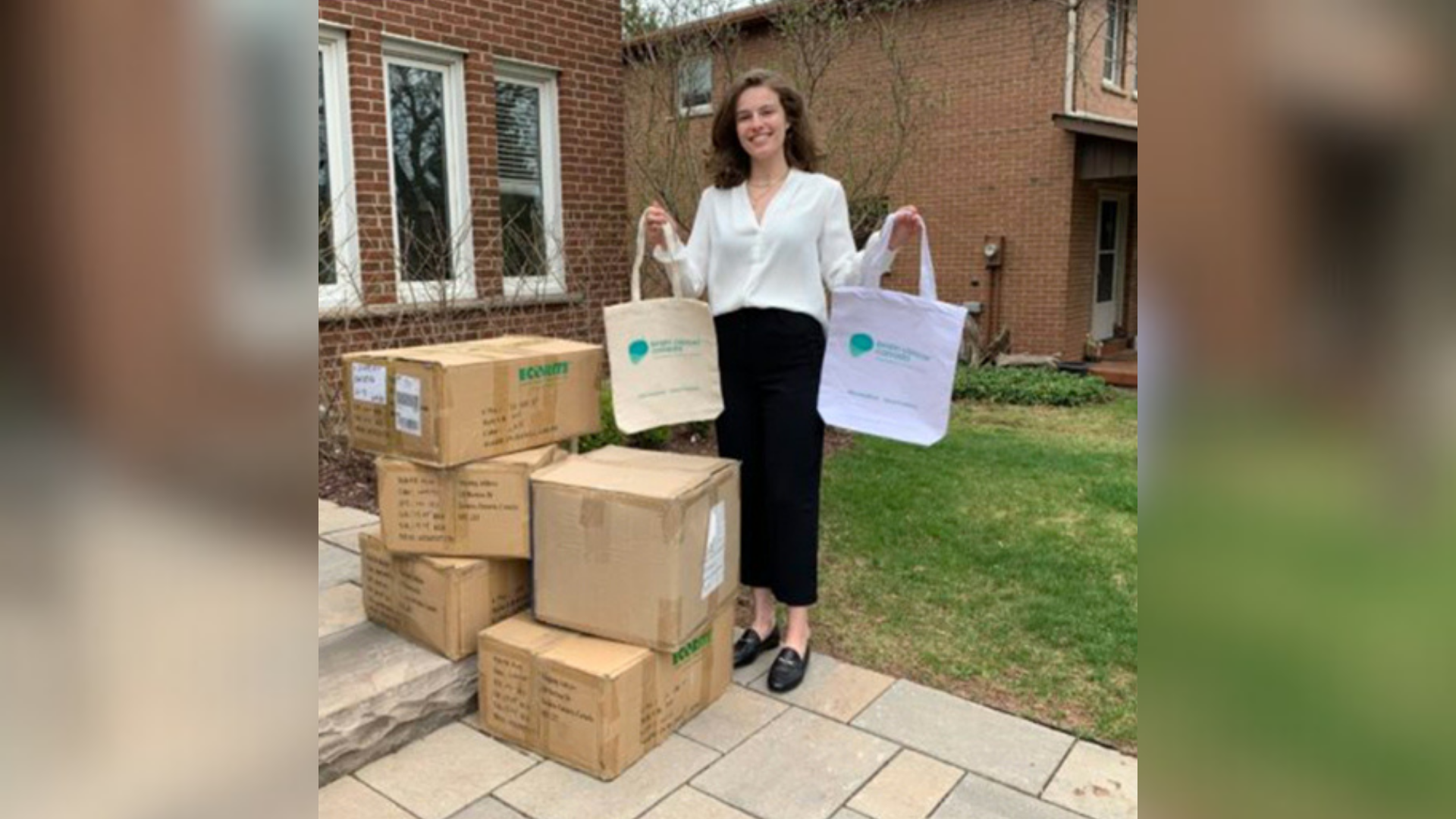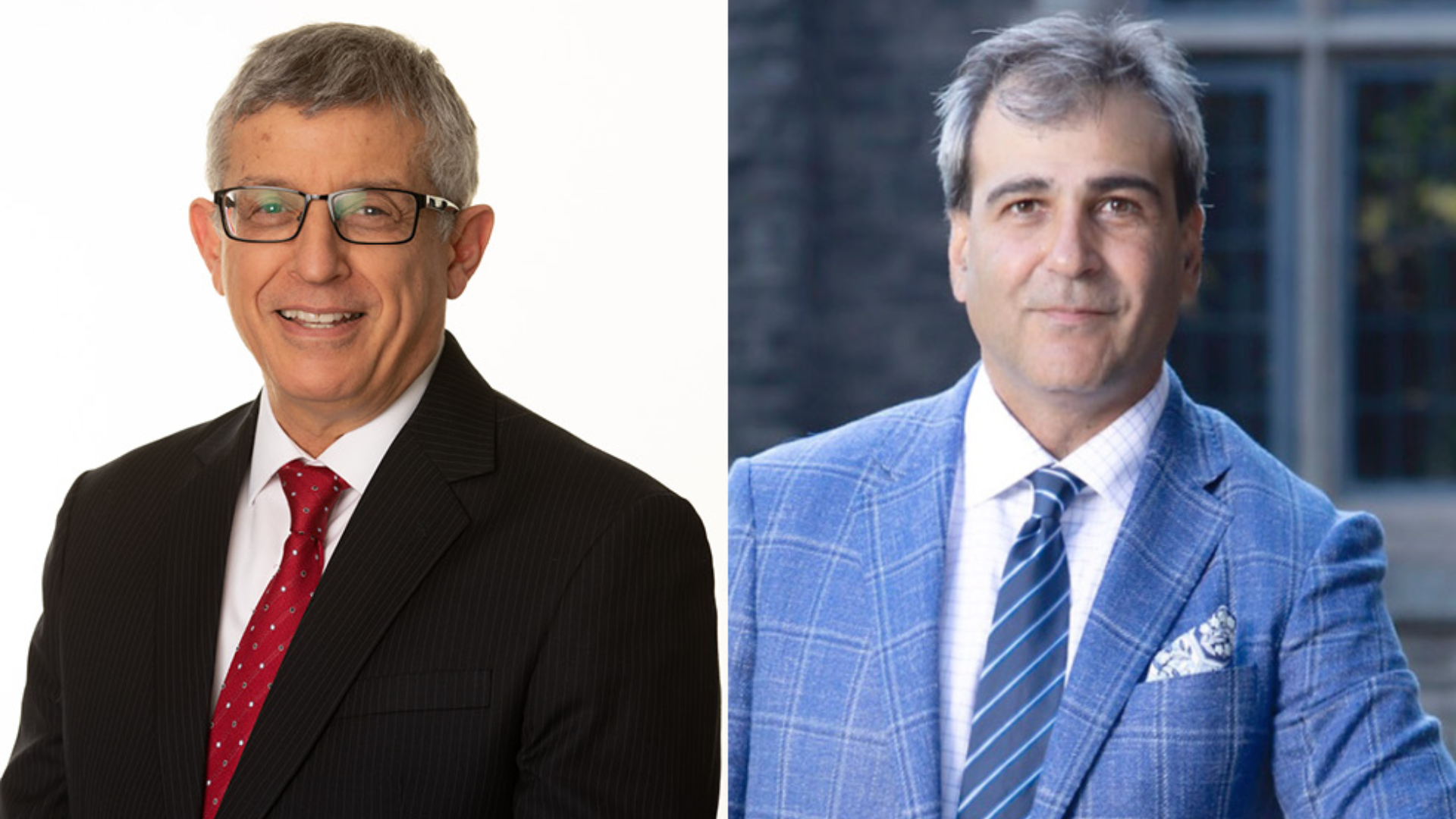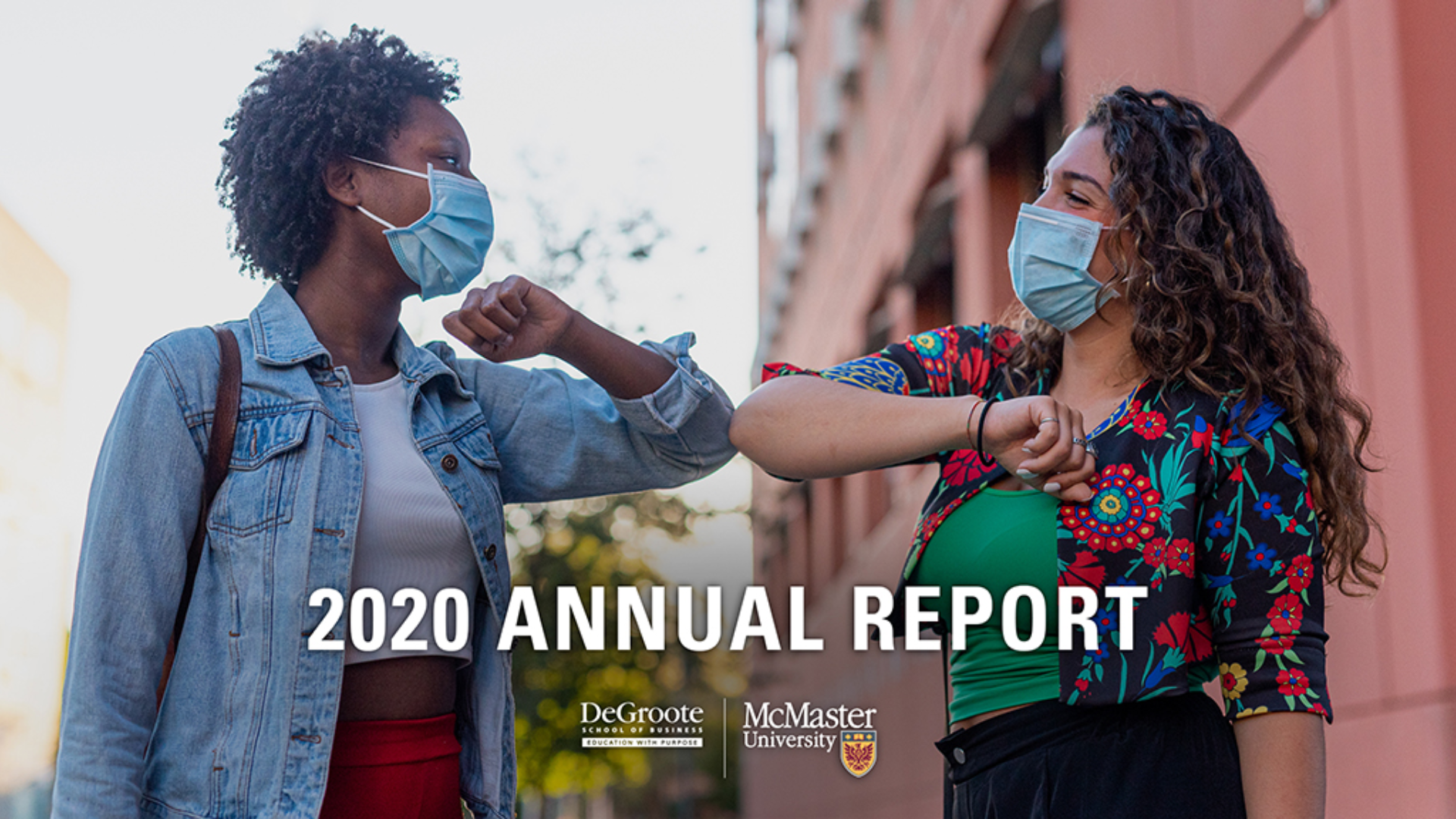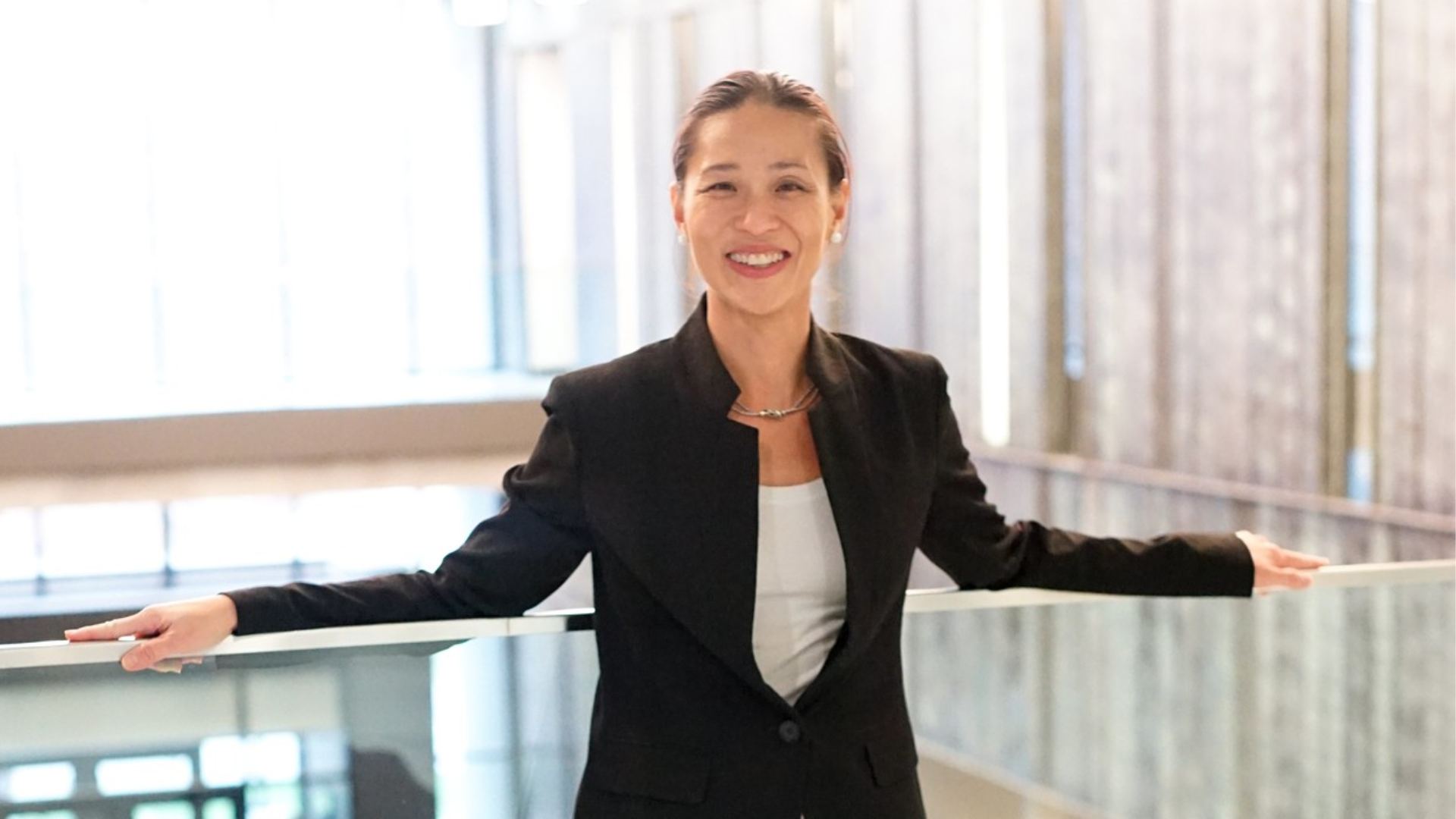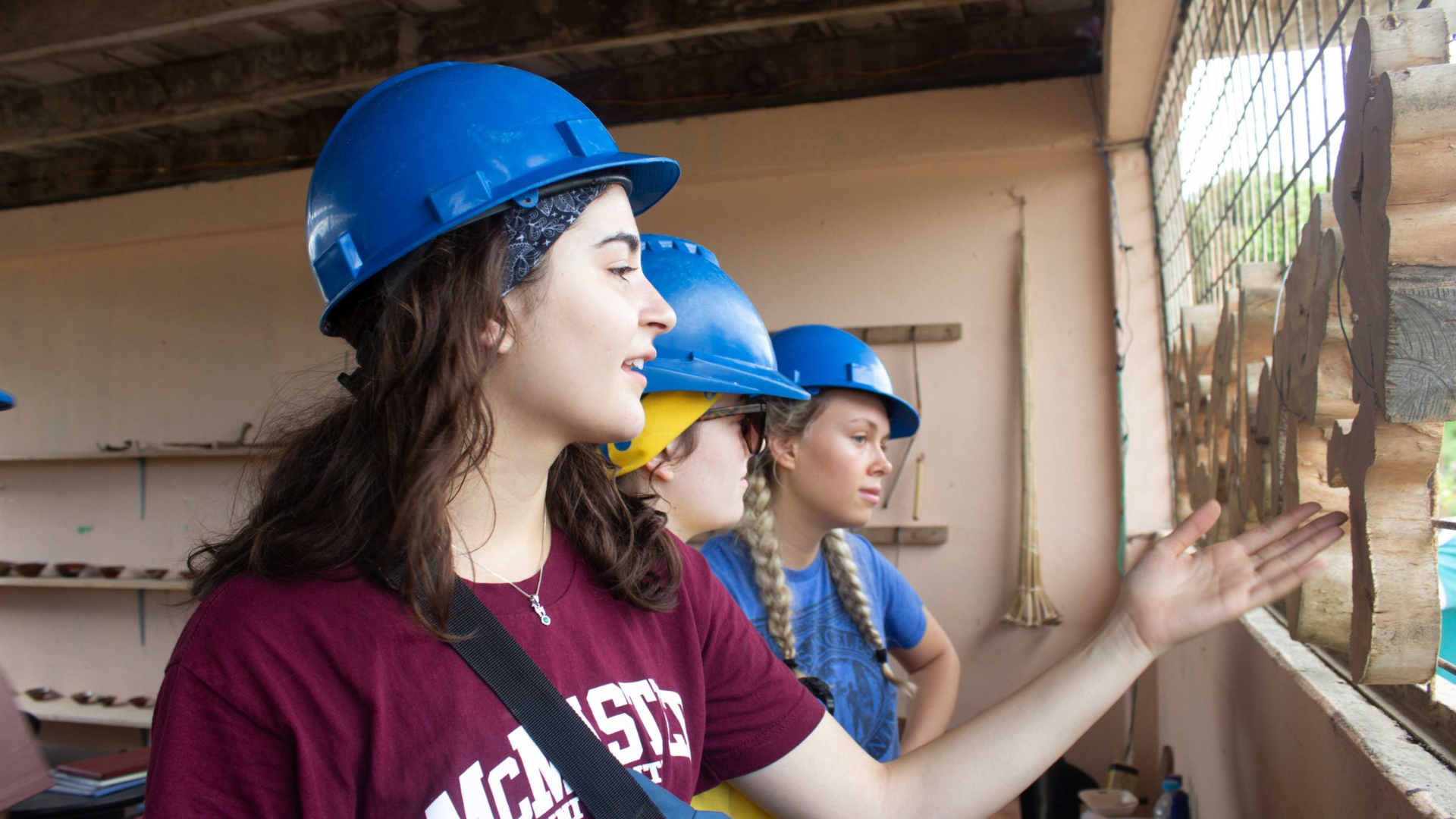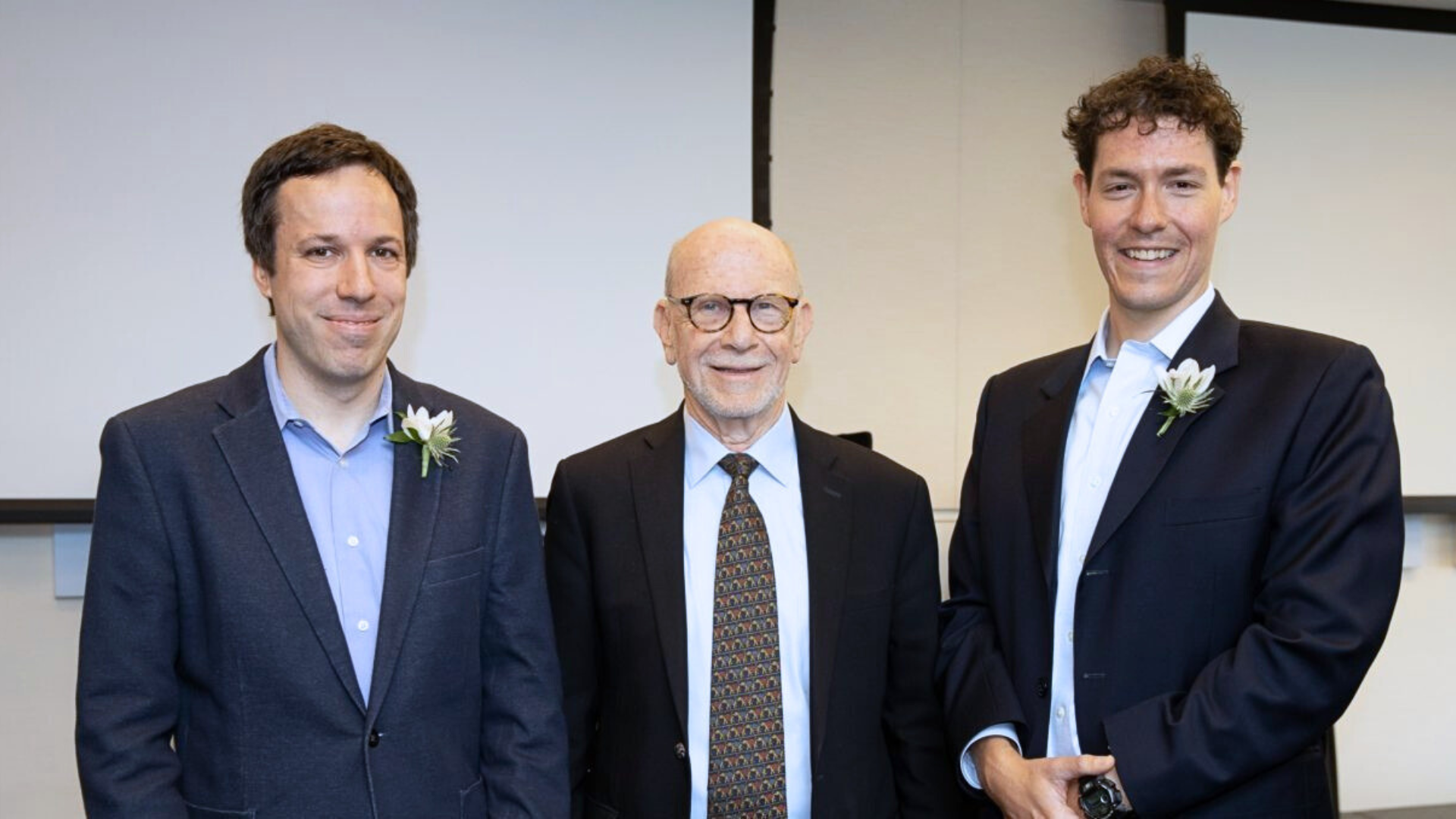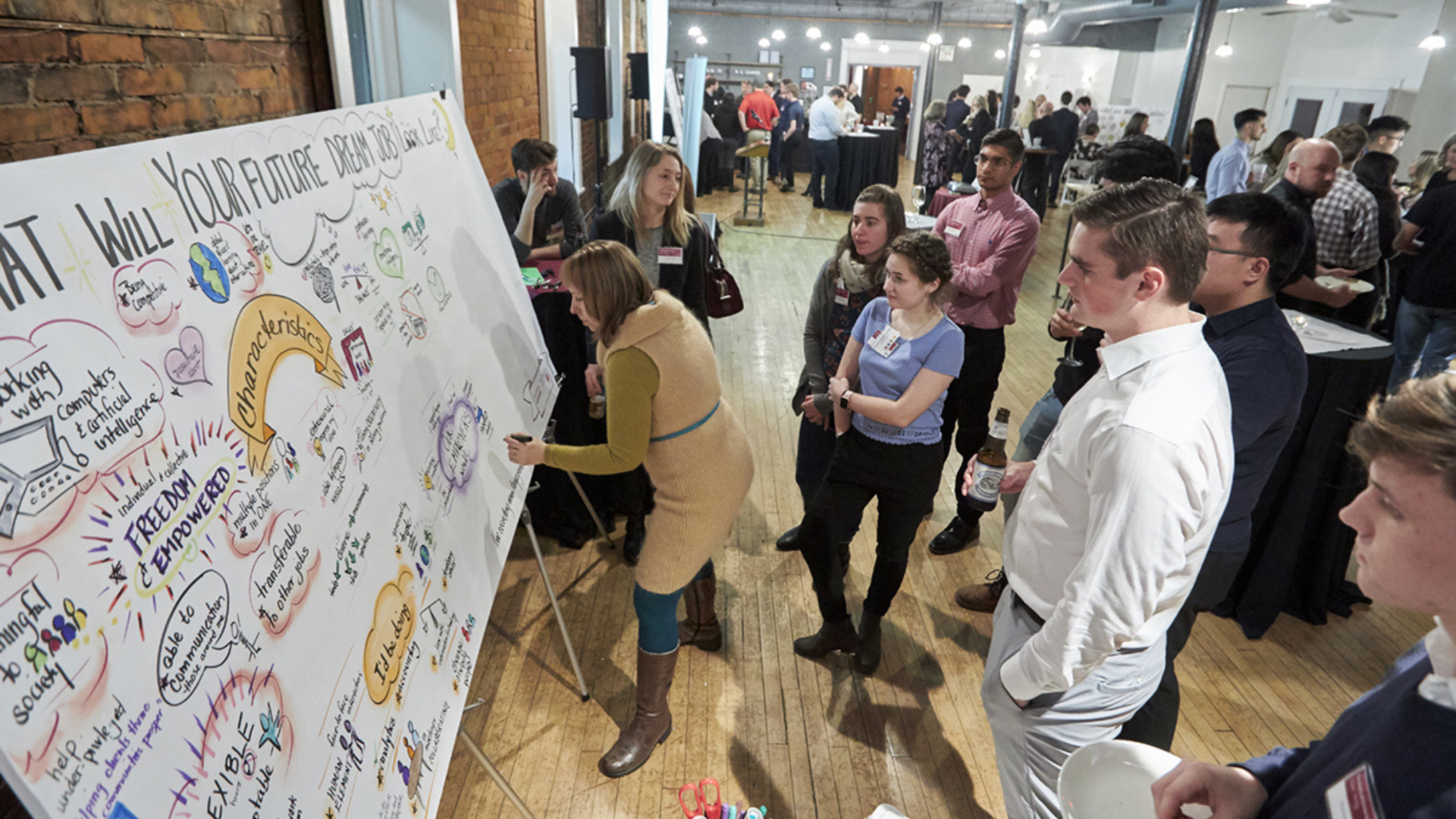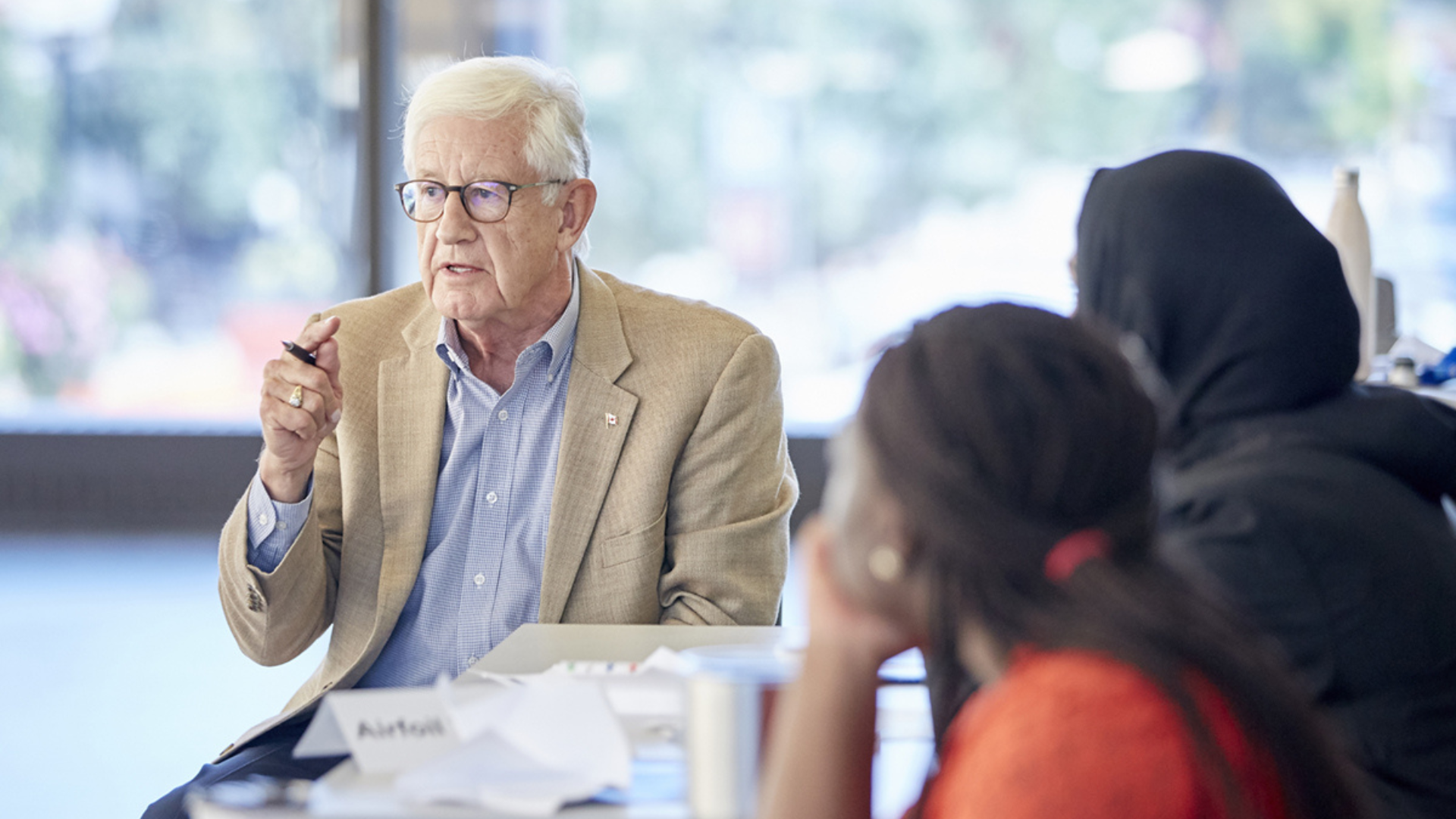Fostering a 'Socratic' classroom and other big goals: DeGroote welcomes five new faculty members in 2019
July 2, 2019 ·
Contributed by: Andrew Baulcomb, Communications Officer

“My teaching philosophy is rooted in humanizing the classroom by knowing my students well,” says Shashank “Sash” Vaid, one of five new faculty members. “My classroom is Socratic, in that I nudge students to connect the dots through a small ‘q’ and big ‘A’ format of learning.”
Following an extensive search, the DeGroote School of Business is pleased to welcome five new professors to its growing faculty.
The group is comprised of Jenna Evans (Health Policy and Management), Ken Li (Accounting and Financial Management Services), Yang Pan (Marketing), Trish Ruebottom (Human Resources and Management), and Shashank “Sash” Vaid (Marketing).
“We are delighted with the outstanding new faculty we have hired,” says Len Waverman, Dean, DeGroote School of Business.
“They offer diverse global visions, and are outstanding researchers and excellent teachers. They augment deeply our ability to fulfill our vision of transforming business and society.”
In addition to supporting in-class and experiential learning opportunities for students, they will also strive to advance DeGroote’s reputation at home and abroad.
Their research expertise covers a wide range of interdisciplinary topics, including:
Health system performance and integration; the role of accounting information in capital markets; marketing analytics and marketing-finance interface; processes of social change in organizations; and the links between computer science and econometrics.
Since 2016, the School has recruited more than a dozen new faculty members to serve a large and-highly engaged student body, and to help usher DeGroote into the next decade.
Below, get to know the latest faculty members to join DeGroote:
 Jenna Evans
Jenna Evans
University of Toronto, Health Services Research (Organization and Management), PhD ’14
Tell us what attracted you to the DeGroote School of Business and McMaster University. Why are you excited to work here?
As a health services researcher specializing in managerial and organizational behaviour, I always knew I would feel most at home in a school of business. I was particularly attracted to DeGroote because its current strategic plan emphasizes healthcare management, and because of its history of innovation in management education. I also know many healthcare leaders who are alumni of the DeGroote MBA program and continue to feel a strong connection to the School.
As a researcher, what is your primary area of expertise?
My primary areas of scholarship are in health system performance and integration. I have a particular interest in the contextual, social, and psychological factors that influence inter-professional and inter-organizational collaboration in healthcare. I use qualitative and mixed methods, and draw heavily from complex-adaptive systems theory and shared mental model theory.
How do you see this fitting into the teaching and learning efforts at DeGroote?
I see strong synergy between the focus of my research and teaching efforts at DeGroote. To meet the needs of a growing population of patients with complex and long-term conditions, we need to develop “system leaders” who can work differently across professional and organizational boundaries.
Describe your teaching style – how do you connect with students?
My teaching philosophy is rooted in the belief that knowing is different from doing. I emphasize applied learning so that students not only understand concepts but also master associated skill sets. This is achieved, in part, through simulations and case studies in which students role-play. I also draw from my own research in the classroom to help bring course content to life using local examples.
What are your thoughts on enhancing student learning outside the classroom? Is experiential education important to you?
Learning by doing accelerates learning and enhances retention. It also bridges the gap between theory and practice. By extending learning beyond the classroom, students build new professional relationships and the ability to problem-solve in the midst of real-world complexity.
Give us one surprising, amazing, incredible fact about yourself.
I have been an avid Girl Guide for more than 20 years. I helped deliver the Girls for Safer Communities program to communities in Canada and the US, led a local unit of high school girls, and represented the Girl Guides of Canada at the Women Deliver Conference, the world’s biggest gathering on women’s health and rights.
 Ken Li
Ken Li
Stanford University, Business Administration (Accounting), PhD ’19
Tell us what attracted you to the DeGroote School of Business and McMaster University. Why are you excited to work here?
I am attracted to the collegial atmosphere at DeGroote and McMaster. DeGroote and McMaster value innovative research, and I am very excited to do good work here.
As a researcher, what is your primary area of expertise?
I am interested in examining the role of accounting information in capital markets.
How do you see this fitting into the teaching and learning efforts at DeGroote?
Understanding the ways in which accounting information can be relevant and useful can help motivate the accounting concepts that we cover in lectures and why they are important.
Describe your teaching style – how do you connect with students?
I went through a very similar experience many of my students are currently going through. I also studied accounting in my undergraduate studies, pursued my CPA designation, and worked as a professional accountant. I am hoping to engage students by linking the content we cover in lectures to the professional exams they will be writing and the work they will be doing.
What are your thoughts on enhancing student learning outside the classroom? Is experiential education important to you?
I believe students can benefit from learning outside the classroom, because those experiences can help them understand how to apply the concepts they learned in the classroom.
Give us one surprising, amazing, incredible fact about yourself.
My passion for teaching helped motivate me to become a professor.
 Yang Pan
Yang Pan
The University of Iowa, Business Administration (Marketing), PhD ’19
Tell us what attracted you to the DeGroote School of Business and McMaster University. Why are you excited to work here?
Both McMaster and the School have great research support and amazing research faculties. I’m also very excited about the diverse and intelligent students.
As a researcher, what is your primary area of expertise?
My research is mostly focused on marketing analytics and marketing-finance interface. I analyze micro (consumer) and macro (firm) level data to facilitate managers in making strategic decisions.
How do you see this fitting into the teaching and learning efforts at DeGroote?
I can teach students how to collect and analyze data, as well as how to think strategically. I believe business students should be more than just data-analyzing professionals, they should know how to turn results into real-life decisions.
Describe your teaching style – how do you connect with students?
I like to explain marketing concepts based on the students’ own experiences. Small talks before class and during office hours also help me connect with students.
What are your thoughts on enhancing student learning outside the classroom? Is experiential education important to you?
I believe it is extremely beneficial for students to learn through real-life projects with local businesses. These projects not only help students to learn better, but also benefit them in their future careers.
Give us one surprising, amazing, incredible fact about yourself.
I am a wonderful cook.

Trish Ruebottom
York University, Strategic Management, PhD ’13
Tell us what attracted you to the DeGroote School of Business and McMaster University. Why are you excited to work here?
I was drawn to the DeGroote School of Business because of its reputation for innovative, cross-disciplinary research and teaching. I am very excited to be joining this renowned and growing faculty.
As a researcher, what is your primary area of expertise?
My research explores processes of social change in and through organizations. I have examined how organizations implement social and technological innovations to create societal and environmental benefits, and the role of entrepreneurship in stigmatized industries.
How do you see this fitting into the teaching and learning efforts at DeGroote?
I believe my research will complement the great research being done in the Human Resources and Management area, as a lot of my own work bridges and connects the individual and organizational levels.
Describe your teaching style – how do you connect with students?
My teaching philosophy focuses on engaging students in exploration and developing skills in evaluating and integrating information and experience. I utilize active learning methods and critical engagement with real life examples, as well as the students’ own experiences, in order to build reflective practitioners.
What are your thoughts on enhancing student learning outside the classroom? Is experiential education important to you?
I believe experiential learning is the best way to connect theory and practice. I often use live case studies and the students’ own experience to build practical skills that can be used in the real world.
 Shashank “Sash” Vaid
Shashank “Sash” Vaid
University of Houston, Marketing (Econometrics), PhD ’19
Tell us what attracted you to the DeGroote School of Business and McMaster University. Why are you excited to work here?
McMaster University’s research ranking and reputation is terrific. Proximity to major technology hubs of Toronto, New York, and the New England region uniquely position Mac’s researchers to solve cutting-edge problems.
As a researcher, what is your primary area of expertise?
My research explores interfacing between computer science and econometrics. For instance, I’m trying to understand the quantum impact of digital transformation on society and businesses. In this regard, I leverage a toolbox that draws on skillsets related to artificial intelligence, machine learning, super-computing, and big data analytics.
How do you see this fitting into the teaching and learning efforts at DeGroote?
The goal of my research is to help managers embrace uncertainty triggered by digital transformation. My research should help students switch between consumer and managerial hats to differentiate between consumer behavior and managerial actions in online and offline settings.
Describe your teaching style – how do you connect with students?
My teaching philosophy is rooted in humanizing the classroom by knowing my students well. My classroom is Socratic, in that I nudge students to connect the dots through a small “q” and big “A” format of learning.
What are your thoughts on enhancing student learning outside the classroom? Is experiential education important to you?
Business in general and marketing in particular are highly-applied sciences – more so in our new digital age. It is an article of faith with me that learning by doing sharpens nuance for workplace critical thinking skills.
Give us one surprising, amazing, incredible fact about yourself.
I aim to swim roughly three kilometres daily, at least five times a week. I’ve also indulged in periods of water-only fasting. For now, I’ve gone up to five days without food. I expect to go further.

